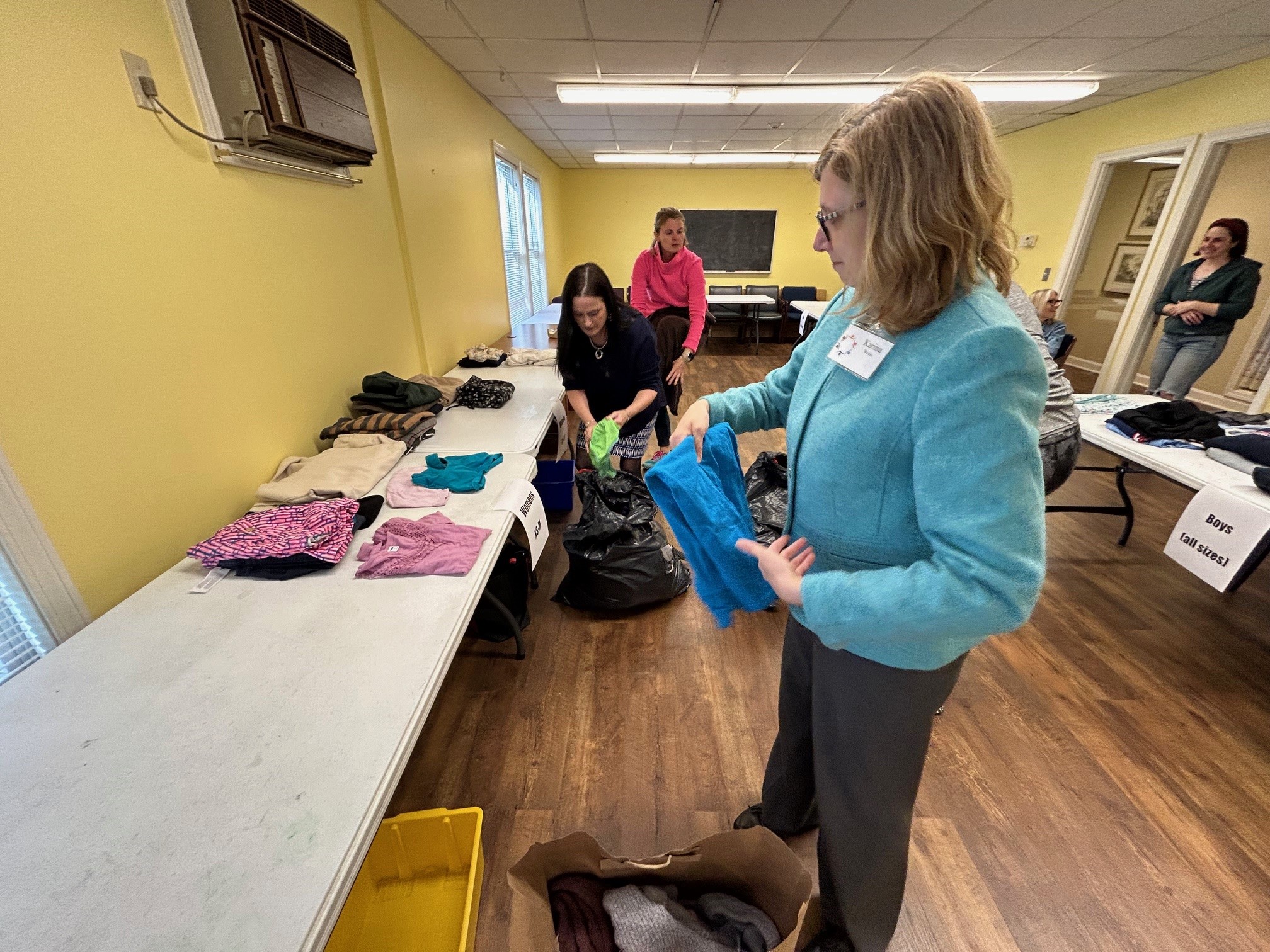In the midst of an ongoing push from some members of the public to bolster resources for English learning students and their parents, Governor Ned Lamont is proposing new legislation through his English Learners Bill of Rights.
“I got to make sure that each and every one of your kids know they are welcome in our schools,” Lamont said.
On Monday, the governor visited the Bridgeport office of the community organization Make the Road Connecticut, which has been pushing for this kind of legislation.
“I want mom and dad to be able to communicate with the teacher, make sure they have all the information they need to get the very best out of education,” Lamont said.
Get Connecticut local news, weather forecasts and entertainment stories to your inbox. Sign up for NBC Connecticut newsletters.
Governor’s Bill No. 6663 has been referred to the Education Committee, and a public hearing was held earlier this month.
It aims to safeguard the rights of English learners and their parents in schools by ensuring that students can attend public schools regardless of immigration status, and increasing access to translators and interpreters, bilingual education and written materials in a family’s dominant language.
“It’s important to me because I have a lot of friends that do not speak English,” Leida Ramos, Make the Road Connecticut parent advocate, said.
Local
Two advocates for the legislation say they know what it’s like to be an ESL student firsthand.
“My father didn't speak English. And, you know, thankfully, you know, my mom did. My mom would often translate for some of the other parents who couldn't speak English,” Ramon Garcia, CommCan parent advocate, said.
Garcia and Ramos both have parents from Puerto Rico and grew up in Connecticut households where Spanish was the primary language.
“Sometimes when it came to school and paperwork, I had to translate for my mom what they were saying,” Ramos said. “It's not fair for a student that's learning to be a translator to their parents.”
They want to prevent other families from facing the same barriers.
Make the Road Connecticut estimates there are roughly 50,000 English learners in Connecticut schools.
NBC Connecticut reached out to the state’s five largest school districts: New Haven, Bridgeport, Waterbury, Hartford, and Stamford.
The superintendents for New Haven and Hartford Public Schools responded to requests for comment, each saying that they support the measures laid out in HB 6663, but want to ensure funding for these resources.
“I do agree that more resources are needed for English Learners as one of our identified high needs group. In New Haven, this group has seen significant increase in student enrollment. However, this needs funding. The state could support urban school districts with this increase in population. We cannot afford to have unfunded mandates,” New Haven Schools Superintendent Dr. Iline Tracey said.
Hartford Public Schools Superintendent Dr. Leslie Torres-Rodriguez provided the following statement:
“Hartford Public Schools is proud of its diverse staff and student body, and celebrates the 88 different languages, cultures, and backgrounds represented in our district. HB 6663 aligns with the mission of Hartford Public Schools to create better accessibility and improve two-way communication for all students and families.
We have taken steps to do just that, including using ParentSquare as our district and school-based communication platform, so all families can receive two-way messages from teachers and staff automatically translated into their preferred language. Additionally, we utilize professionally trained interpreters at community events as well as the Language Line for other interpretation needs. After recent discussions with parent advocates, we launched a pilot program to have remote interpretation services available at parent-teacher conferences.
It is important to us that our families feel respected and welcomed in our district, so we continue to encourage them to provide feedback on the many services we offer. Providing the translation and interpretation services our families deserve requires a substantial financial investment so we look forward to gaining greater clarity on how the state plans to support those efforts upon passage of HB 6663.”
Waterbury Public Schools also responded to the governor’s bill, saying the district is addressing the needs of English learners and multilingual speakers in several ways.
Belen Michelis, communications spokesperson, says the curriculum includes built-in language routines, multilingual glossaries, parent communication in various languages, individualized student lessons and assessments in multiple languages.
Belen says since students speak more than 40 different languages, the district supports open lines of communication by utilizing the phone and video translation service Linguistica International, and teachers are able to send home messages using other platforms like Parent Square.
Waterbury Public Schools is also promoting and celebrating biliteracy through an International Dual Language school, where students are becoming bilingual and biliterate in English and Spanish.
The Seal of Literacy award is given to high school seniors who have achieved proficiency in two or more languages by graduation.
State Rep. Kathleen McCarty, (R-38th District) also wants to ensure proper funding for any new mandates laid out by new legislation.
“It's somewhat the state's responsibility to help if we have the Bill of Rights in place, that we also now to help provide the necessary funding, and ensure that the funding is reaching those students,” McCarty said.
As a ranking member on the education committee, she tells NBC Connecticut she sees the need to provide this support to students and families.
“It's my job to be sure that everyone receives a quality education,” McCarty said. “I believe these Bill of Rights are really within the domain of, of the rights of the English language learner. And I think they are protected in statute already, but this just really solidifies what those rights should be.”
The governor's bill is separate from a similar piece of legislation filed by Democratic State Reps Antonio Felipe and Juan Candelaria. House Bill 6211 would lay the groundwork to protect undocumented families that register kids for school, and require more interpretation and documents to be sent out in a parent's native language.
Felipe showed his support at the governor’s event at Make the Road Connecticut Monday.
“Usually these things take time these things take years there are things to hammer out,” Felipe (D-Bridgeport) said. “I'm just thankful that we got this done in year one, or we are going to get this done in year one.”
The governor’s office says next, the legislature will likely pick just one of these bills to advance since they are so similar.
“We do more in this state to try and make people feel welcome, wherever they come from, whatever their language, whatever their background,” Lamont said. “That's what this bill is all about.”



